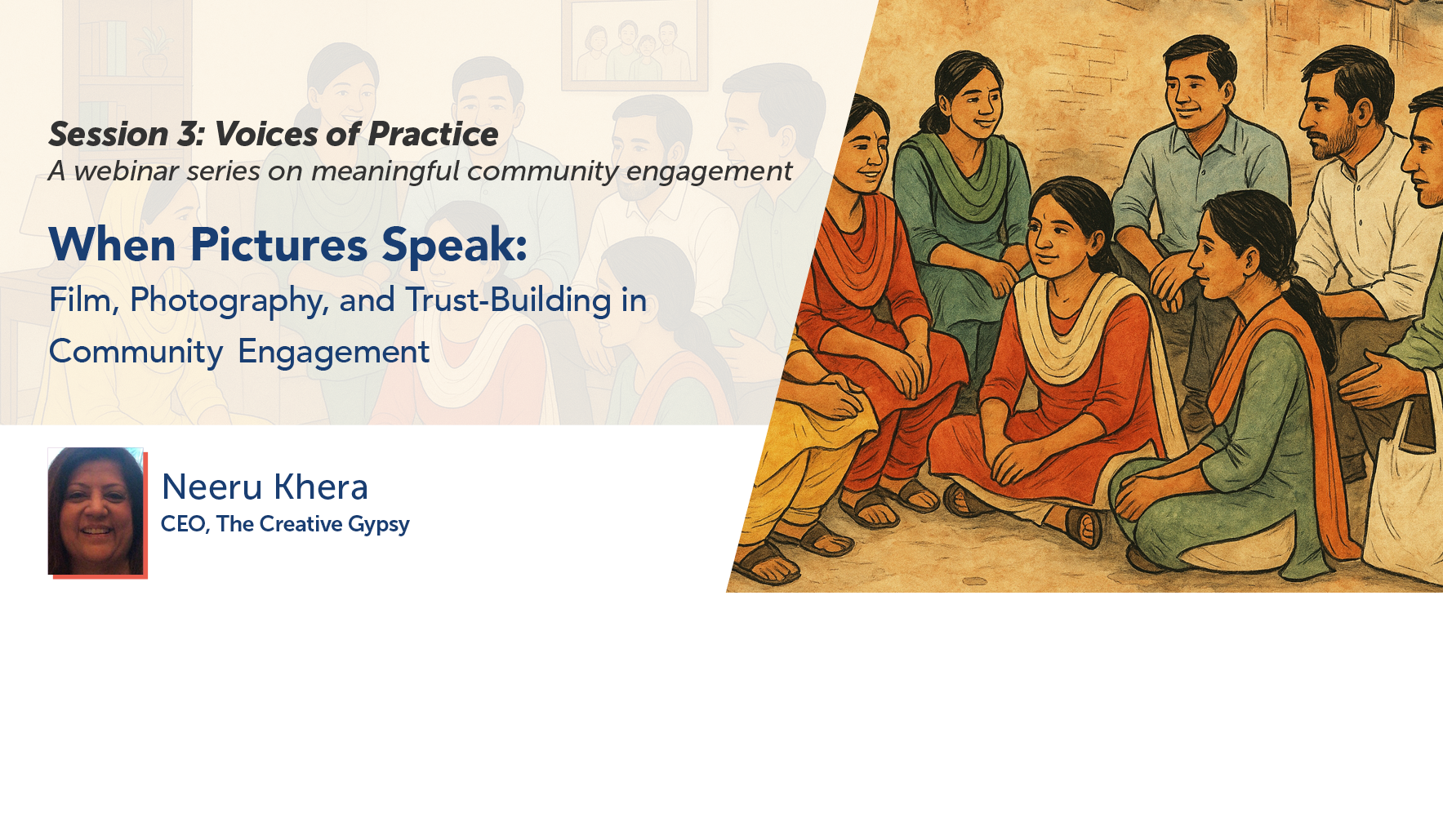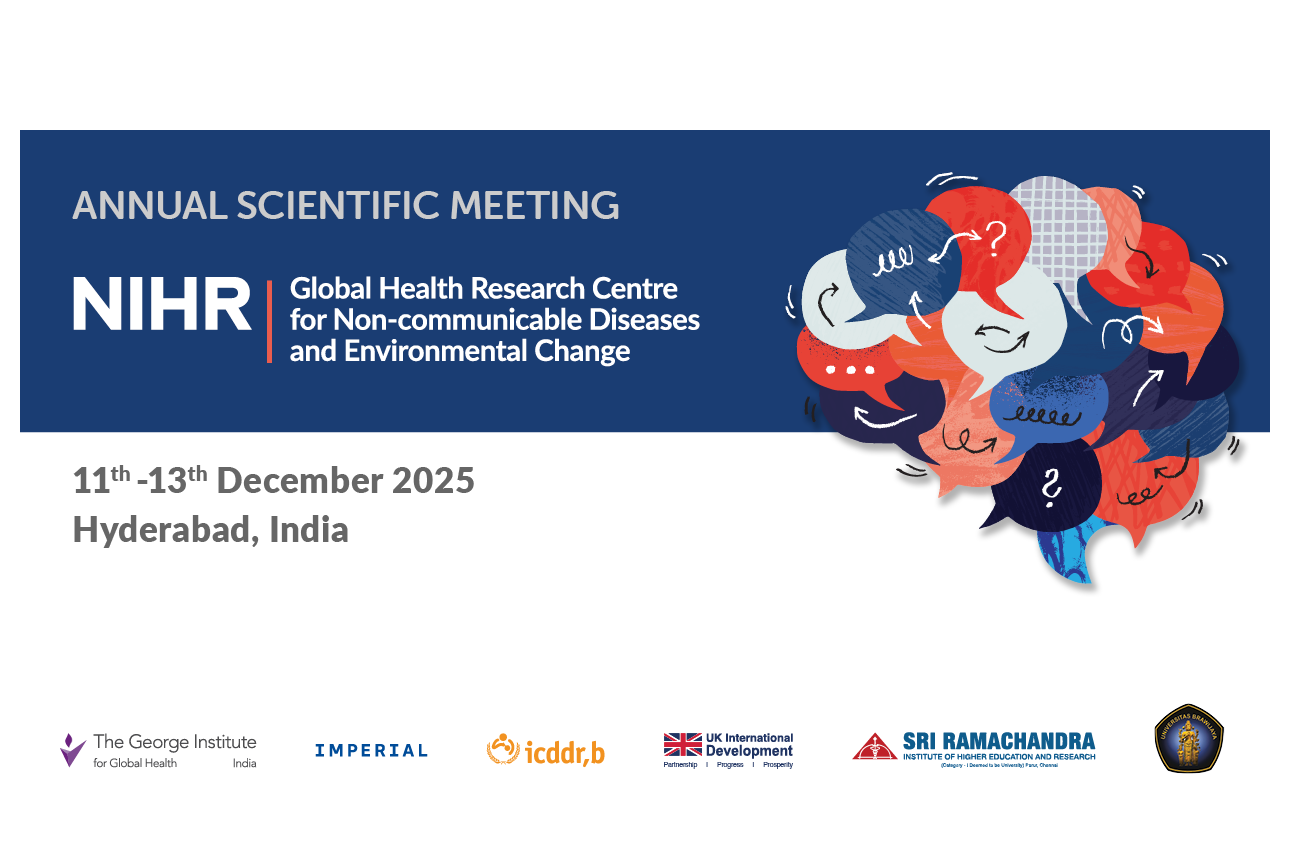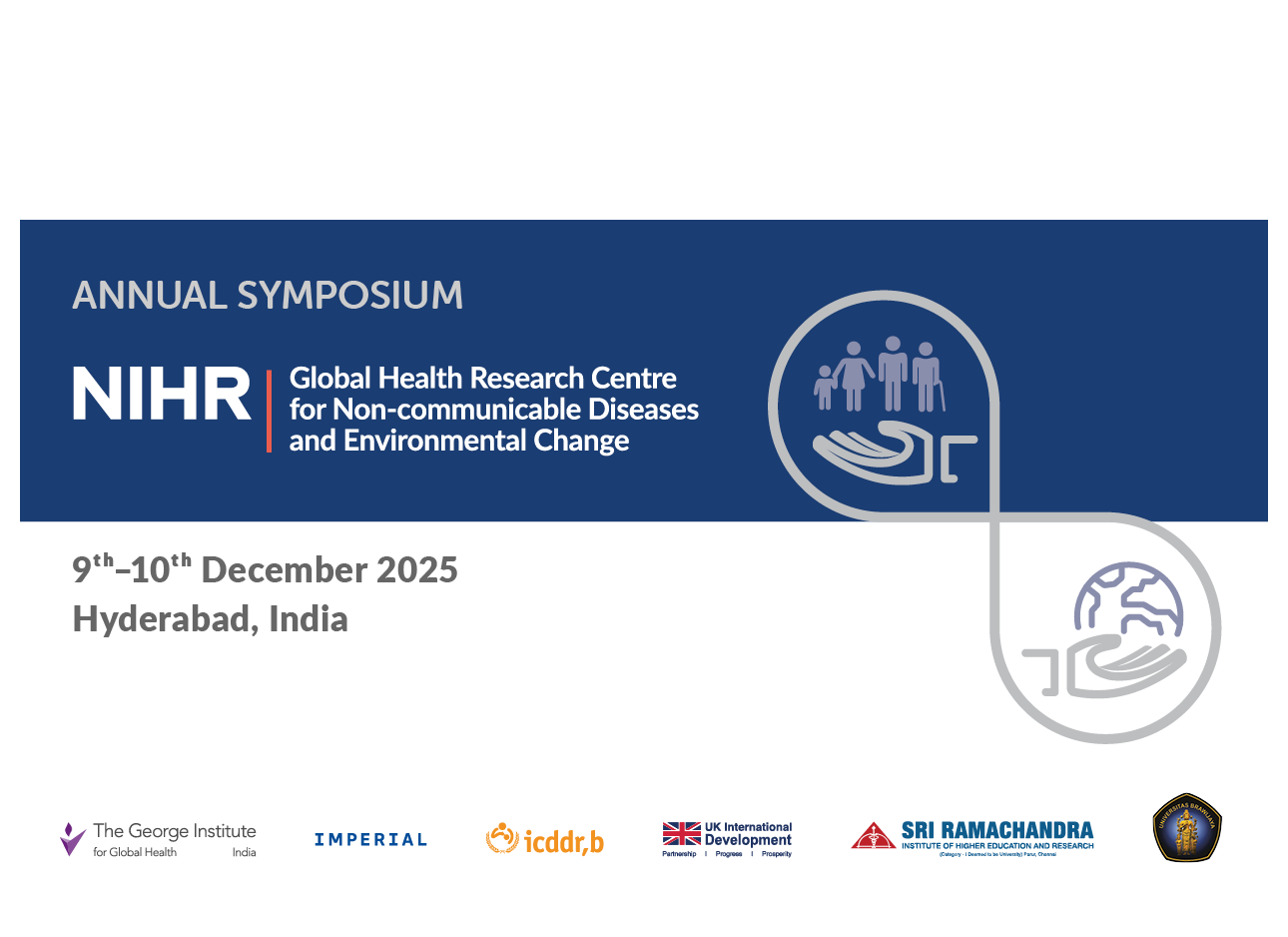The NIHR Global Health Research Centre for Non-communicable Diseases (NCDs) and Environmental Change is investigating the intersection of adverse climate change and its impact on accelerating health risks. With partners in India, Indonesia and Bangladesh, we’re exploring how environmental changes— like extreme heat, air pollution through plastic burning, water salinity, and unsustainable food systems — interact with NCDs. As the Project Manager for a multi-partner research programme, one often gets asked, “How does one organise the different responsibilities?” The answer lies somewhere between strategy and empathy. This blog explores the unique challenges one faces and the invaluable insights one learns from managing a large-scale, interdisciplinary project—and why, despite and at times because of the demands, it’s a deeply fulfilling journey.
In the realms of global health research, the spotlight (rightfully) falls on groundbreaking fieldwork, impactful community engagement, and transformative policy advancements. But quietly and diligently behind every successful intervention is the unwavering commitment to aligning diverse teams, adhering to timelines, and placing ethics and equity at the forefront.

From left to right: Bijini Bahuleyan, Aritri Dutta, Sarah Iqbal, Suruchi Aggarwal
I have had the privilege to work at this critical intersection—where strategy meets implementation, for some years now. Coordinating with and for a multi-country, multi-stakeholder initiative brings with it a rich and intricate tapestry. Each workstream comes with its unique timelines, community partners, research protocols, and policy contexts. My role is to not only bring these elements together but also to ensure that the essential threads of ethics, sustainability, community engagement, and research capacity strengthening are woven into the very fabric of our research, driving us towards equitable global health.

One of the most rewarding aspects of the job is supporting our teams across countries and disciplines. Whether we are co-creating tools with communities, dealing with fieldwork delays caused by extreme weather, or troubleshooting digital tools for participatory mapping, the key element is collaboration. Often, it’s about being flexible rather than enforcing a rigid plan and adapting with integrity.
From left to right: Suruchi Aggarwal, Professor Krishnendu Mukhopadhyay, Professor Christopher Millett
We’ve made conscious and deliberate efforts towards building frameworks that support equity and inclusion. For example, ensuring local partners have clear roles in governance, that early-career researchers are supported when presenting their work, and engaging communities as active participants in shaping solutions rather than simply treating them as data sources. These principles need time and attention, but they are vital to ensure that our research is both meaningful and sustainable.
Much like any worthwhile endeavour, it comes with its fair share of challenges. Aligning priorities across institutions. Navigating different administrative processes. Managing expectations. Responding to shifting policy contexts. Yet, the real challenge—and the most fulfilling reward—is cultivating cohesion in a landscape of diversity.
Our research is still unfolding, but it’s already reshaping how we think about health. It bridges a crucial gap between climate adaptation and chronic disease prevention while strengthening research capacity amongst young researchers, supporting community-led solutions, and working closely with local governments.

From left to right: Suruchi Aggarwal, Holipah Holipah, Hikmawan Wahyu Sulistomo
As I look ahead, I marvel at how the NIHR Global Health Research Centre for Non-communicable Diseases and Environmental Change is redefining global health research. Deeply collaborative, grounded in ethics, and committed to creating real-world impact, working on this project has reinforced a powerful lesson for me. To effectively tackle today’s health challenges, one must expand one’s perspective and embrace the bigger picture. I have come to understand that project management in global health transcends beyond mere tools like Gantt charts and logframes; it encompasses the intricate dynamics of climate and systems while focusing on the essential element—people.
This journey, and it is a journey and not just a destination arrived, is about fostering trust, establishing a shared language across diverse disciplines, and developing systems that nurture research and innovation. I am proud to be part of an initiative that uncovers connections often overlooked by others, emphasizing the importance of collaboration, ethics, and creativity at every stage of our work. Together, we are driving change and redefining the possibilities in global health.
——————————————————
This blog was authored by Suruchi Aggarwal.
About the author:
Suruchi Aggarwal– Suruchi is the Program Manager for the NIHR Global Health Research Centre for Non-communicable Diseases and Environmental Change. Her experience and expertise in coordinating this intricate, multi-country research initiative are vital for effectively connecting implementation partners with funders, ensuring that the project adheres to the highest ethical standards and generates meaningful impact. Suruchi takes a comprehensive approach that spans governance, project execution, and partner engagement, while also embedding critical priorities such as capacity building, equity, and sustainability into every stage of the work.
This research was funded by the NIHR (Global Health Research Centre for Non-communicable Diseases and Environmental Change) using UK international development funding from the UK Government to support global health research. The views expressed in this publication are those of the author(s) and not necessarily those of the NIHR or the UK government.






